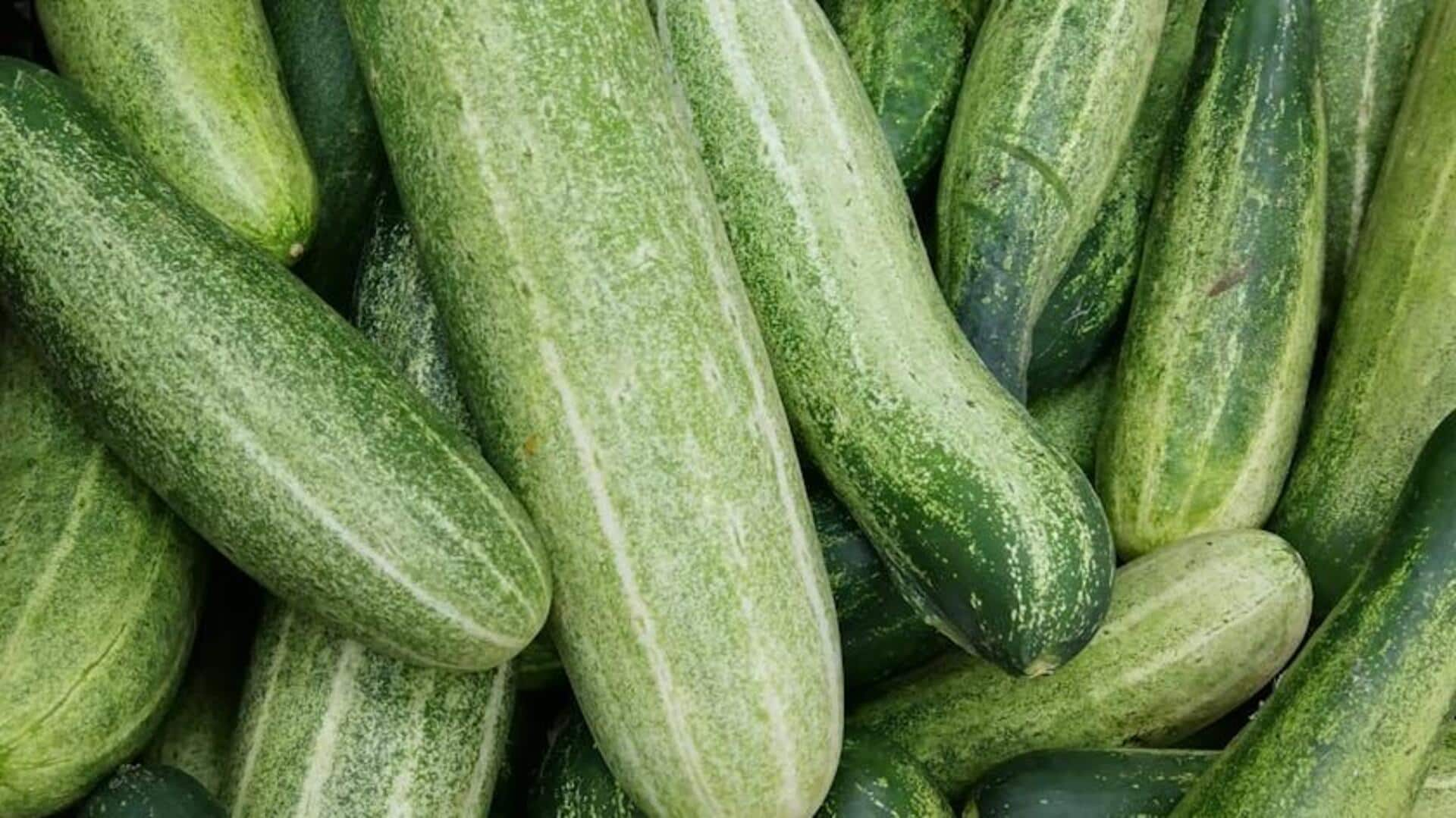
Cucumbers v/s zucchini: Comparing their nutrition
What's the story
Cucumber and zucchini are two favorite greens commonly used in salads and other dishes. While the two may appear similar, they boast of different nutritional profiles that can influence your dietary decisions. Knowing the difference between the two veggies can help you choose one over the other to reap certain health benefits. Here, we talk about cucumber and zucchini's nutrition.
Hydration
Water content comparison
We all know cucumbers are packed with water. They are made up of 95% water, which makes them a perfect food for hydration, hot weather, or post-workout. Zucchini also has a good amount of water, but a little less than cucumbers—around 94%. Both veggies can add to daily fluid intake, but cucumbers can give you an extra edge when it comes to staying hydrated.
Calories
Caloric value differences
When it comes to calorie count, both cucumbers and zucchini are low-calorie vegetables. A cup of sliced cucumber has some 16 calories while the same cup of sliced zucchini has roughly 19 calories. Given these low-calories, both the vegetables make for an excellent addition to weight loss diets. However, if you want to keep your calories in check, cucumbers are slightly better.
Vitamins
Vitamin C content analysis
Vitamin C is another essential nutrient present in cucumbers and zucchini. Zucchini offers more vitamin C per serving than cucumbers. A cup of sliced zucchini gives approximately 20% of the recommended daily intake of vitamin C, while cucumbers give about 4%. For those who want to up their vitamin C through vegetables, zucchini may be the better option.
Fiber
Fiber content evaluation
Dietary fiber is important for digestive health and regular bowel movements. Zucchini has more fiber than cucumbers, with roughly one gram per cup versus cucumber's half a gram per cup serving size. Adding more fiber-rich foods like zucchini can help you digest and feel full after meals.